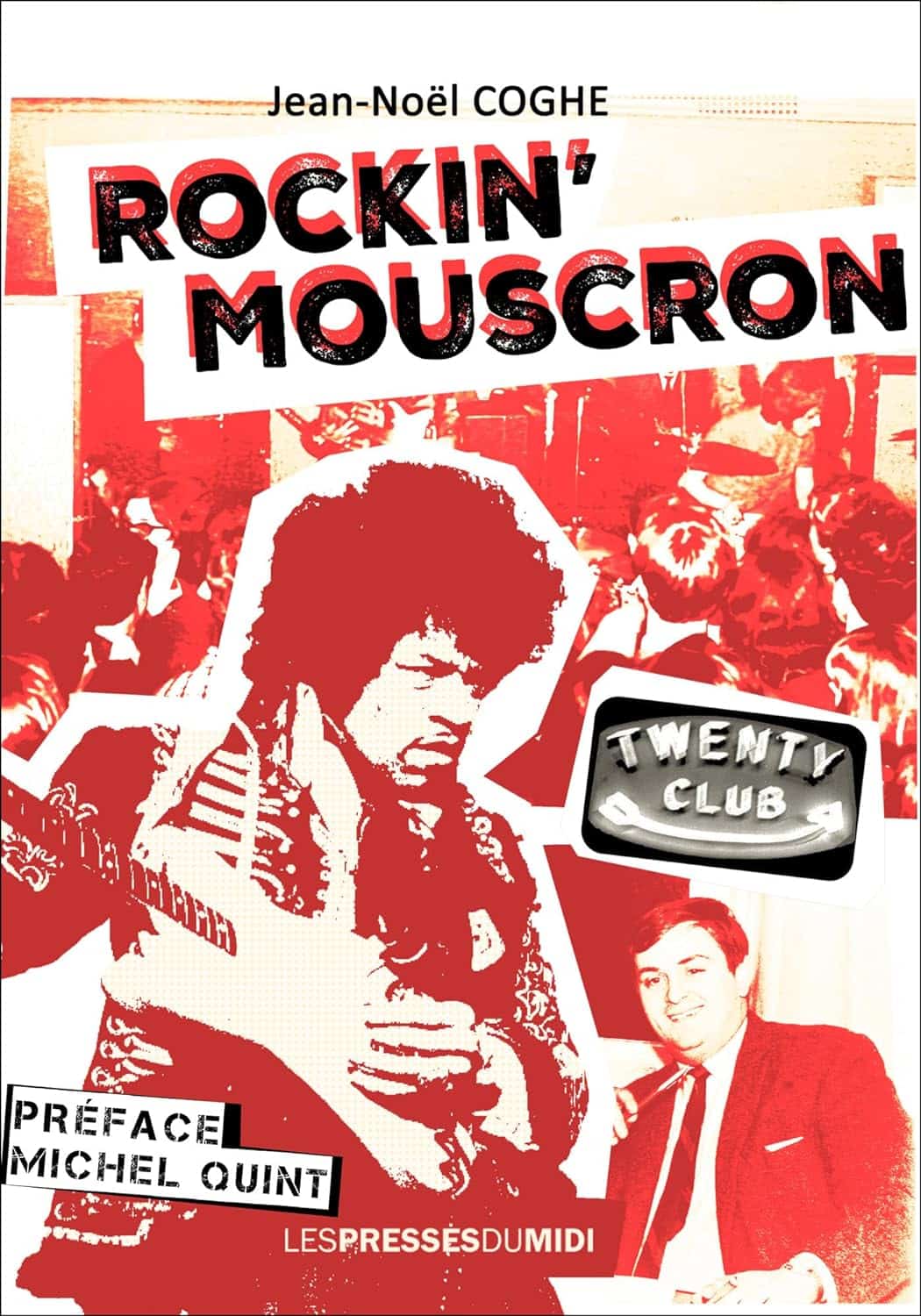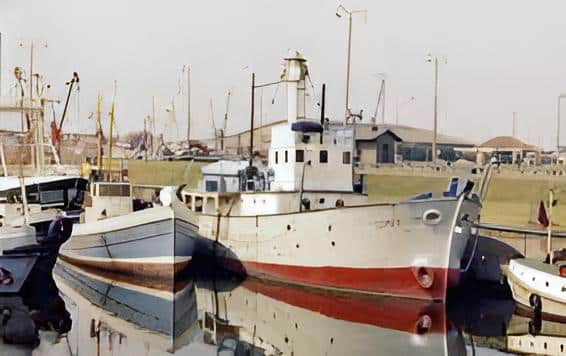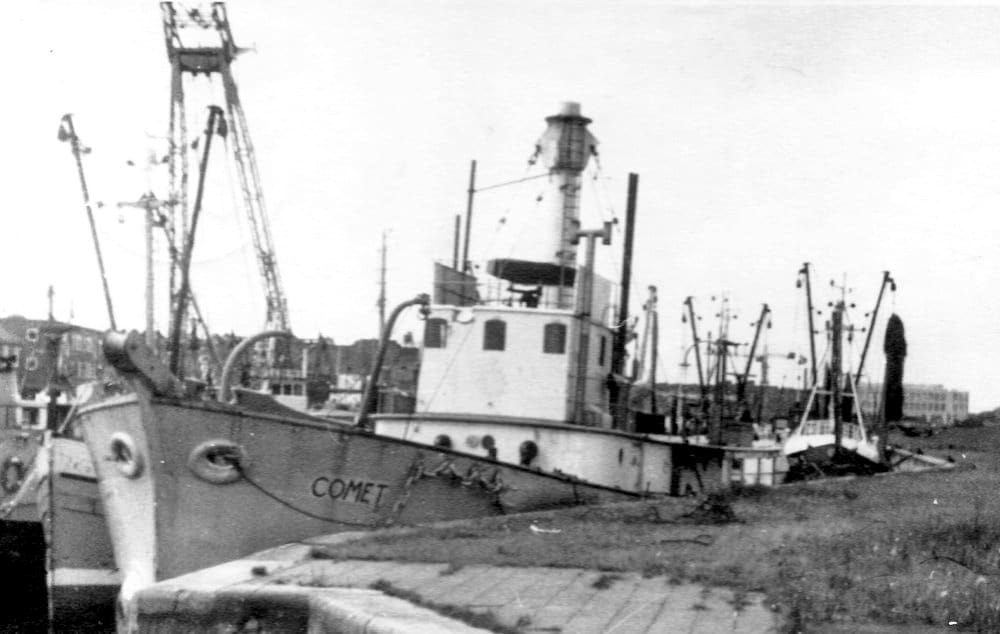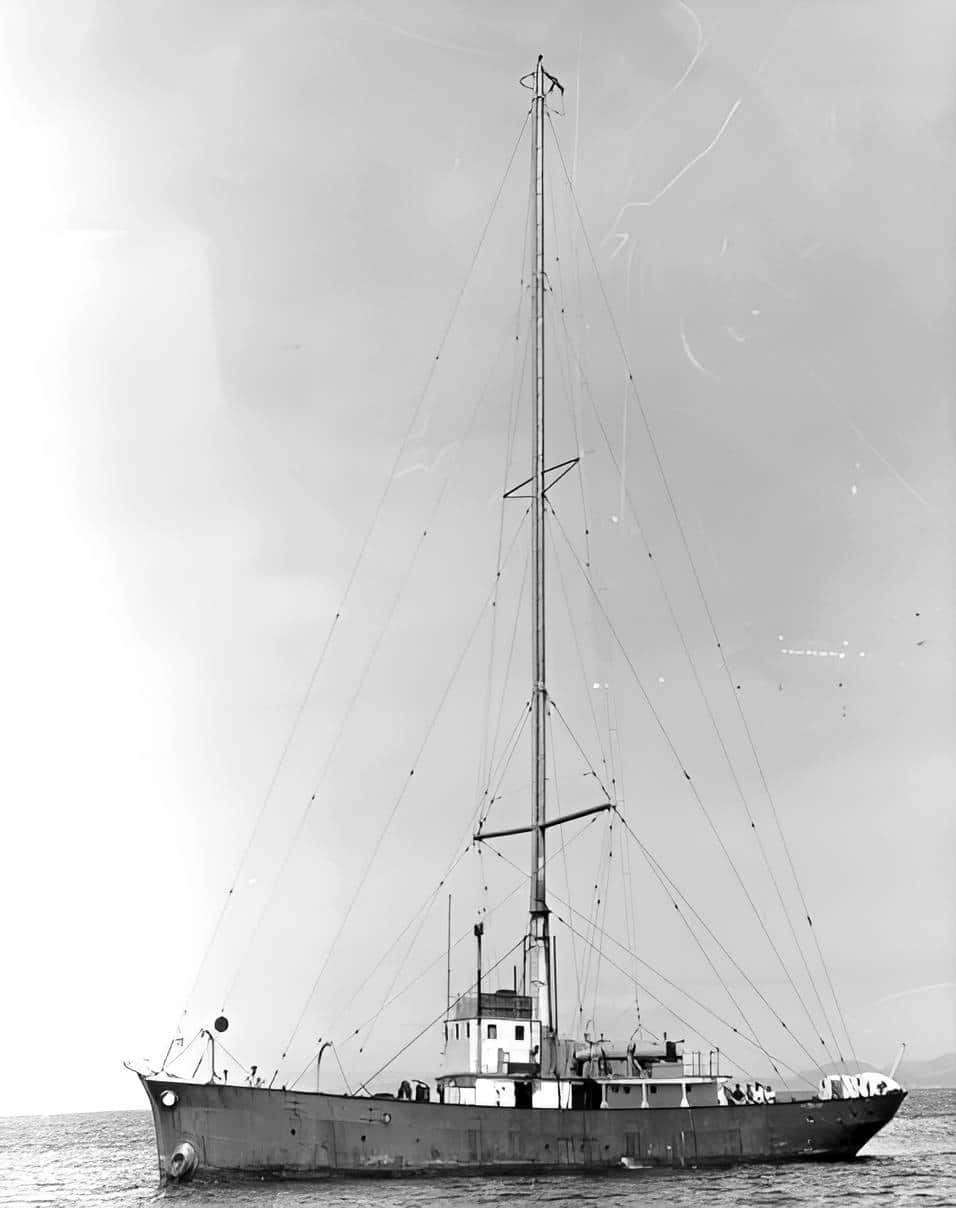Ship details: A 90 foot 500 ton former lightship having no engines was built at John Browns ship yard on the River Clyde. Two diesel generators drove the transmitters, which were RCA. B10 J’s employing the Ampliphase system of phase modulation. Each transmitter developed 10,000 watts, and the transmitters feed via a combining network to the aerial. This gave a total power output of 20,000 watts, with the added facility that either transmitter could be shut down for maintenance, and the service retained on half power. After Radio Scotland’s closedown, the Comet was towed to Dunbar harbour and was put up for sale. Later the Comet was taken to the port of Methil, Fife, where the radio transmitter and studio equipment was removed. The Comet was sold and towed to Holland where she was used as a houseboat. In 1969, the Comet was scrapped by shipbuilder Van de Marel of Ouwerkerk, Holland.
Offshore radio station: Radio Scotland from 31st December 1965 to 14th August 1967

https://www.offshoreradio.co.uk/album1.htm
After the end of broadcasting, it’s commonly known that the ship was towed into Methil Harbour in Fife, where the transmitter was removed. The studio equipment was left there untouched though.
The ship was put up for sale, but no buyer came forward and the ship was eventually taken to Holland to be broken up.
But I just learned a story recently, by reading a book published in French in 2023, titled “Rockin’ Mouscron” by French DJ, writer, broadcaster, etc.. Jean-Noel Coghe. Among the numerous books he wrote are biographies of Rory Gallagher, Bill Wyman and Jimi Hendrix. I’ve personally met Jean-Noël a couple of times, first in his apartment in Mouscron, Belgium while I was working for the local CATV company, and secondly while he was a disc-jockey working for Fréquence Nord, a powerful official FM radio station broadcasting in the Lille region of Northern France. But we didn’t talk about Radio Scotland on those occasions.

In his book, Jean-Noël tells the story of how the Comet nearly had a second life as an offshore radio station.
A project was born in 1968 by people from Germany, France, Belgium and The Netherlands to start a new ship-based station, with programs in English, German, French and Dutch. Funds were found in those countries. Jean-Noël was among the French who were asked to take part in the project.
The station would be called Radio Concorde and would transmit in the Long Waves band of wavelengths.
At the time, the Comet was moored in the Dutch port of Vlissingen, waiting to be broken up. The projected Radio Concorde staff went to visit the ship, and started bringing in new equipment. As the original studio was still equipped for broadcasting, it was modernized with new electronics.
Test programs were recorded in various languages, using the original Radio Scotland ship studio.

Secret meetings, secret trips, secrets financial transactions were happening on a regular basis.
Jean-Noël tells the story of when he was stopped at the Belgian/French border by customs officers (there was no “free traveling for goods” yet at the time); they searched his case and found records, tapes and paper sheets with “Radio Concorde” written all over the place…which they knew nothing about so they let him go. The tapes were actually the test programs intended to be broadcast!
The project didn’t go through though, due to some money funders backing off, as some of the countries involved were preparing legislation to ban the offshore stations, just like the British had done with the Marine Offences Bill in August 1967.

According to most sources, the Comet would later be used as a houseboat before being broken up by Van de Marel shipworks in 1969.
Later, in the mid-seventies, some of the Belgian citizens involved took part in the successful Radio Mi Amigo adventure with Sylvain Tack.
Attached is an image with: first the Comet in the port of Vlissingen; second, Jean-Noël Coghe at the desk in the old Radio Scotland studio on board. Pictures are from Jean-Noël’s book that is available on most web outlets such as Amazon and others.

Location: International waters off Dunbar, later off Troon and Ballywalter (Scotland).

